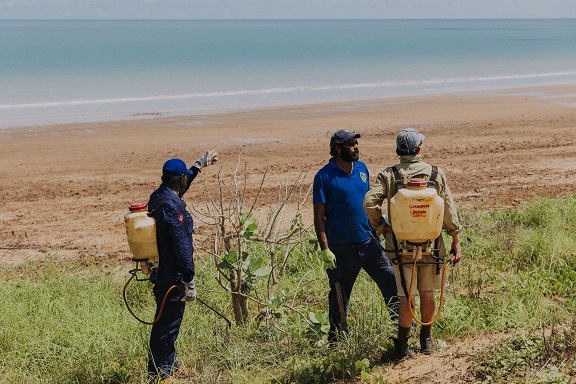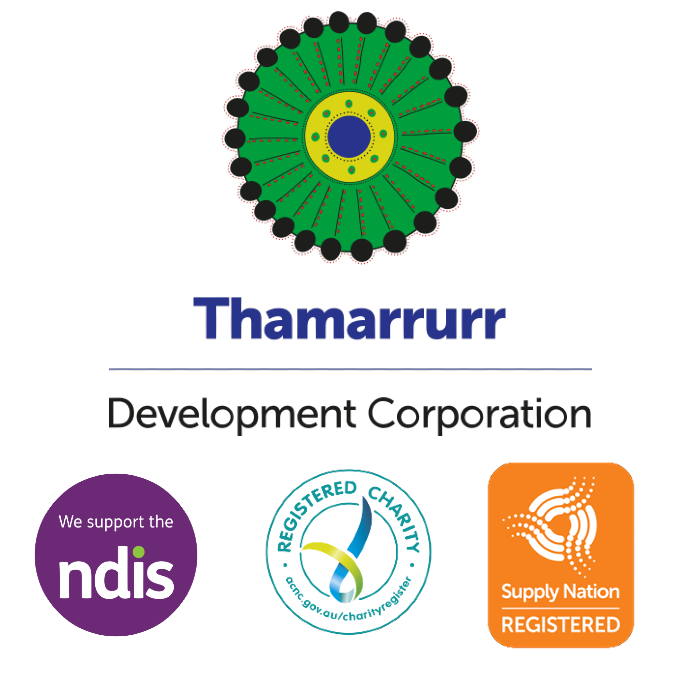Thamarrurr Rangers
Page content
Thamarrurr Rangers was established in 2001 by the Traditional Owners of the Thamarrurr region to address land and sea management issues. It has grown from humble beginnings through CDEP (Community Development and Employment Programs), to a well-resourced program through the Working on Country (WOC) program, NTG contracts and fee-for-service agreements.
Thamarrurr Rangers are an important part of the Thamarrurr Development Corporation, employing 20+ local Indigenous staff and 4 non-Indigenous support staff. The rangers actively engage with Traditional Owners and community members in natural and cultural resource management as they work across 18,000 sq km of Country and 240 km of coastline.
Our rangers take care of Country by:
- Managing significant weed problems, especially mimosa on floodplains, mission grass in disturbed areas and rubber bush in coastal dunes
- Undertaking fire management, including regional scale planning with key stakeholders, localised planning with landowners and ensuring the protection of cultural areas, clearing fuel loads and slashing, back burning around assets and outstations, facilitating aerial and on-ground burning in the early dry season
- Conducting weekly sea patrols to monitor fishing activity, and reporting any suspicious/illegal activity working in joint operations with Water Police, NT Fisheries and Customs
- Working on Fisheries research projects on fish stocks and improving our skills through training in Fisheries Compliance and Enforcement
- Supporting surveys of marine species, including turtles, dolphins, dugongs and other indicator species including nesting beach turtles
- Monitoring visitor activity in the region, and promoting the use of NLC permit system to ensure the rights of Traditional Owners are respected
- Monitoring the impact of feral animals in the region, and undertaking aerial and on-ground culls of feral pigs
- Monitoring biosecurity threats through mapping of exotic food species, community animal health surveys and taking blood/tissue samples of feral animals
- Supporting cultural activities and knowledge transfer, including trips with senior people and children to access Country
- Working with Ranger cadets at school to provide learning experience on the job and on Country, and teaching the importance of protecting culture and Country to the next generation
- Surveying, documenting and protecting cultural sites in the region
- Working with Traditional Owners to manage the Marri-Tjavin
- Supporting wild harvest of bush foods, medicines and handicraft species, as well as documentation of this knowledge
- Managing a community nursery, including collection and propagation of native plant species
- Supporting health workers in doing trips onto Country with mental health clients at the clinic and also providing fish or bush meat to aged care facility
- Undertaking regular collection and documentation of ghost nets and other marine debris
- Facilitating a community recycling program to reduce litter and raise community awareness


 Thamarrurr Rangers
Thamarrurr Rangers